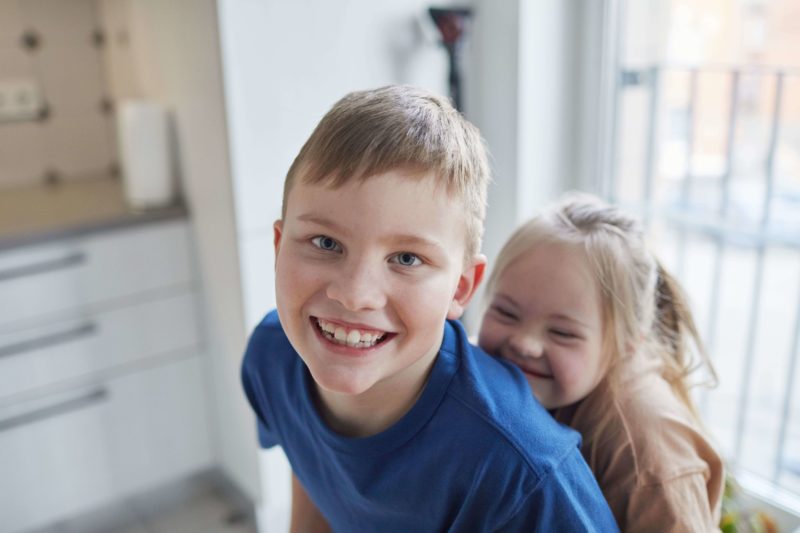How have the relationships you have with your siblings influenced your social-emotional development throughout your life?
With our siblings, we learn to directly express a range of emotions, specifically those of love, frustration, loyalty, and jealousy. We gain companionship and support through these relationships and the ability to resolve troubling situations. It’s here where we learn the significance of social relationships and how they aid in developing our identity.
What’s the difference when there is a child with additional needs in the picture? Naturally, the family dynamic and structure will require modification due to the varying demands of the sibling with additional needs; however, there are several positives for your child having a sibling with a disability.
It’s reported that children who have a sibling with a disability are more often gentle and kind, sympathetic and responsive to the additional needs of others. They are also reported to be tolerant, compassionate, responsible, independent and mature and a result.
It’s expected that the mental processes of how we think and feel will vary in our day-to-day life as a sibling to a child with a disability. It’s important to validate those good times and not so good times are typical within this journey just as much as they are for the parents. Below is a list of varying emotions that siblings of children with disabilities may experience:
Pride
The sibling may feel a sense of pride when their sibling with a disability makes an achievement or has a personal understanding of what disability is.
Anger and Resentment
Your child may feel they are competing for your attention or that their responsibilities differ from their sibling with a disability. Resentment may also occur if they feel restricted in what they can do, along with the pressure of caring for their sibling.
Embarrassment
They could be embarrassed about how their siblings behave in public and what their peers may think. asked ques
Sadness
Your child may feel upset their sibling is unable to participate in the same activities, games and opportunities they have.
Lonesome
They may express the “no one understands” attitude as they feel they are unable to relate to others with their personal experience around disability.
Worry
Your neurotypical child may become worried about their future responsibilities in their sibling’s life or when their unpredictable behaviour may occur.
With all these emotions in mind, you may be wondering now, “what can I do to?”. First, it’s essential to support your neurotypical child by ensuring there are personal activities you can complete 1:1 with them. This can also be empathised by acknowledging their contributions to the family and that their role is valued.
It is also crucial to express both the positive and negative feelings they may encounter and know they are validated and understood. This can be extended into including them in the decision-making process of your child with special needs, as it will reinforce their opinion is respected.
Most importantly, allow your children to be kids and experience all the joys of growing up!
If you are looking for support for your sibling of a child with a disability, you might like to check out the following resources:
Siblings Australia – Promoting better support for siblings of children and adults with disability
Raising Children – Information and resources for supporting siblings of children with disability


